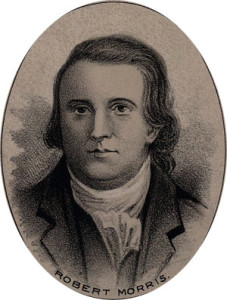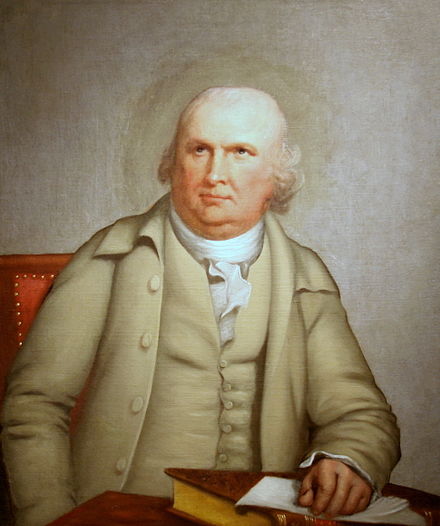Who helped incorporate the first bank in Philadelphia?
 May 26, 1781 — The Bank of North America incorporated in Philadelphia today, thanks to the help of a wealthy delegate to the Continental Congress named Robert Morris.
May 26, 1781 — The Bank of North America incorporated in Philadelphia today, thanks to the help of a wealthy delegate to the Continental Congress named Robert Morris.
The Philadelphian was not a military strategist, but he recognized that the Continental Army did not have the funds to procure enough clothing and supplies for the soldiers fighting the Revolutionary War.
He watched as the number of soldiers willing to volunteer dropped, and those who stayed on become increasingly dissatisfied. This led to widespread fear that the campaign for independence might fail — and Morris knew something needed to be done to save the day.
He not only loaned the government $10,000 of his own money to help finance the war, but Morris came up with a plan to create a national bank and proposed it to Congress. Congress approved the plan nine days later, and the Bank of North America became the first bank in the United States. It opened for business in January 1782, and brought stability to the colonial economy. It also helped finance the war, and established the credit of the United States with the nations of Europe.
Morris was immediately appointed Financial Agent of the United States (today known as the Secretary of Treasury), and put in charge of the fledgling country’s new bank.
Sources
Words of Wisdom
Were it possible that a Society should exist in which every member would, of his own accord, industriously pursue the increase of National property without waste or extravagance, the public Wealth would be impaired by every Species of Taxation, but there never was, and unless human nature should change, there never will be such a Society. In any given number of men there will always be some who are idle and some who are extravagant.





